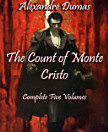The Prussian Terror
નવે 2022 · DigiCat
ઇ-પુસ્તક
267
પેજ
family_home
પાત્ર
info
reportરેટિંગ અને રિવ્યૂ ચકાસેલા નથી વધુ જાણો
આ ઇ-પુસ્તક વિશે
In "The Prussian Terror," Alexandre Dumas crafts a narrative set against the tumultuous backdrop of the Austro-Prussian War of 1866, artfully blending the vigor of historical fact with the vitality of fiction. The novel's tapestry is rich with intrigue, unexpected developments, and the daring escapades that are emblematic of Dumas' storytelling. Readers will discover the stylistic interplay of elaborate adventures and well-etched characters, layered within the nuanced literary tradition of 19th-century historical fiction. Dumas' adept use of plot to amplify historical episodes ensures that the fabric of the era's social and political realities are vividly brought to life. Dumas, renowned for his masterpieces such as "The Three Musketeers" and "The Count of Monte Cristo," has a propensity for illustrating historical narratives with a romantic flair. His foray into the Austro-Prussian conflict is no different, deriving from his keen interest in the significant events that shaped European history. Dumas' experiences and expansive knowledge infuse the novel with authenticity, whilst his imagination embroiders the historical canvas with thrilling embellishments. "The Prussian Terror" is highly recommended for aficionados of historical fiction who revel in the confluence of accurate period depiction and high-stakes drama. Dumas' adeptness at intertwining fact with fiction ensures that both neophytes and connoisseurs of history will find equal pleasure in the pages of this novel. It stands as a testament to Dumas' enduring legacy as a giant of literature, whose works continue to captivate and educate readers on the vast stage of human history.
લેખક વિશે
Alexandre Dumas, born on July 24, 1802, in Villers-Cotterêts, France, and died on December 5, 1870, was an iconic figure of French literature, known for his adventure novels that have captivated readers across the world. Dumas was the son of Thomas-Alexandre Dumas, a general in Napoleon's army, whose ancestry included both French nobility and Haitian slave heritage. This rich cultural backdrop informed Dumas' writing, allowing him to infuse his work with the complexities of political and social issues of his time. Dumas' literary career spanned various genres, but he is best known for his historical adventure novels, such as 'The Three Musketeers' and 'The Count of Monte Cristo', both prime examples of his intricate plotting and vibrant characterizations. In 'The Prussian Terror' (Derrière la Bataille, 1867), Dumas weaves a narrative filled with suspense and the rich historical detail characteristic of his style. Although not as well-known as some of his other works, it provides insight into Dumas' perspectives on war and its consequences. His works were typically serialized in newspapers, which contributed to his popularity and accessible literary presence. Dumas' storytelling prowess encapsulates the Romantic spirit, with its emphasis on action, adventure, and heroism, showcasing his ability to blend fact and fiction seamlessly. His contributions to literature have cemented his reputation as a master storyteller, whose works continue to be widely read and adapted into various media, ensuring his enduring legacy in the pantheon of literary greats.
આ ઇ-પુસ્તકને રેટિંગ આપો
તમે શું વિચારો છો અમને જણાવો.
માહિતી વાંચવી
સ્માર્ટફોન અને ટૅબ્લેટ
Android અને iPad/iPhone માટે Google Play Books ઍપ ઇન્સ્ટૉલ કરો. તે તમારા એકાઉન્ટ સાથે ઑટોમૅટિક રીતે સિંક થાય છે અને તમને જ્યાં પણ હો ત્યાં તમને ઑનલાઇન અથવા ઑફલાઇન વાંચવાની મંજૂરી આપે છે.
લૅપટૉપ અને કમ્પ્યુટર
Google Play પર ખરીદેલ ઑડિઓબુકને તમે તમારા કમ્પ્યુટરના વેબ બ્રાઉઝરનો ઉપયોગ કરીને સાંભળી શકો છો.
eReaders અને અન્ય ડિવાઇસ
Kobo ઇ-રીડર જેવા ઇ-ઇંક ડિવાઇસ પર વાંચવા માટે, તમારે ફાઇલને ડાઉનલોડ કરીને તમારા ડિવાઇસ પર ટ્રાન્સફર કરવાની જરૂર પડશે. સપોર્ટેડ ઇ-રીડર પર ફાઇલો ટ્રાન્સ્ફર કરવા માટે સહાયતા કેન્દ્રની વિગતવાર સૂચનાઓ અનુસરો.








